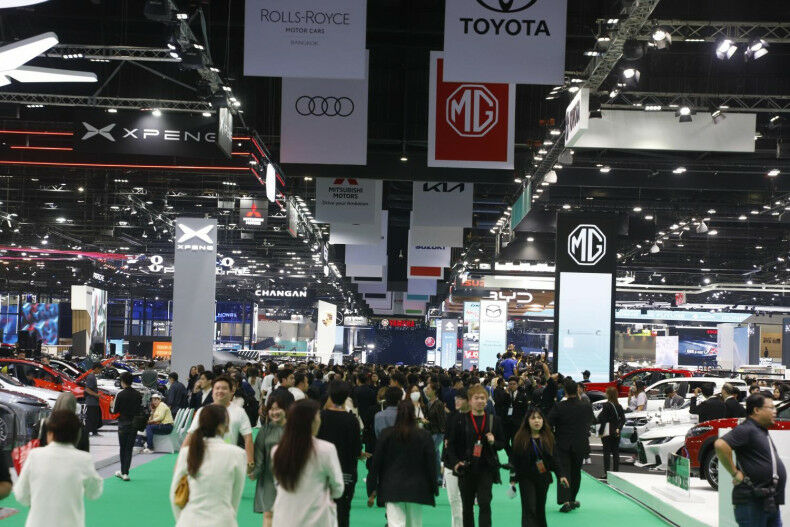Thai EV market shifts into gear with Chinese investment

Major automobile companies are forecasting a rapid escalation in the Thai electric vehicle (EV) market, propelled by increased investment from Chinese EV manufacturers. This is anticipated to ignite a price war as manufacturers strive to lure consumers with competitive pricing.
This viewpoint was shared by Narong Sritalayon, the managing director of Chinese automaker Great Wall Motor (GWM), in a statement made ahead of the Bangkok International Motor Show.
GWM has already commissioned its EV manufacturing plant in Rayong and is prepared to challenge other contenders planning to establish production facilities in Thailand. The company foresees a surge in competition within the domestic EV market as EV availability, predominantly from Chinese manufacturers, continues to expand.
Echoing this sentiment is Thai-Chinese joint venture SAIC Motor-CP, the producer of MG cars. The venture foresees the potential for a price war among manufacturers due to the prevailing market circumstances, said Pongsak Lertruedeewattanavong, Vice-president of MG Sales Thailand.
“We are confident we can deal with a price war.”
Unlike other Chinese companies employing multi-brand marketing in Thailand, MG will market its cars under a single brand.
Further affirming the growing Chinese presence in the Thai EV industry, SAIC Motor-CP is set to inaugurate its battery electric vehicle (BEV) factory in Chon Buri. The company aims to deliver 1000 BEVs a month to customers, with the MG4, a rear-wheel drive EV, being the first model in production.
This commitment to domestic EV production follows the company’s involvement in the government’s EV3.0 scheme, an incentive package encouraging EV consumption and production through subsidies and tax cuts.
In a similar vein, Omoda & Jaecoo (Thailand) Co, a subsidiary of Chery Automobile, a state-owned Chinese EV manufacturer, has announced plans to construct an EV factory in Rayong, with production commencing next year. The company has set an annual sales target of 6000 units for the Omoda EV5 and Jaecoo7.
The influx of Chinese EV imports and stricter car loan criteria imposed by banks are expected to impact domestic production of internal combustion engine-powered cars, according to the Automotive Industry Club of the Federation of Thai Industries.
Despite this, Pongsak remains optimistic about the robust purchasing power of potential buyers of passenger cars and SUVs. He predicts that restricted access to car loans may impact domestic sales of pickups, but should not affect sales in the passenger car and SUV categories.
Latest Thailand News
Follow The Thaiger on Google News:


























